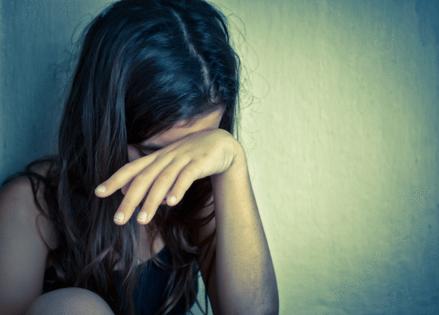Commentary: The dangerous myth that poverty is the cause of child abuse
Published in Op Eds
Why does child abuse happen? A new public service announcement says most people think it’s a “bad parent problem,” but the ad suggests “the root causes may be different than you think.”
This message from Prevent Child Abuse America goes on to explain that child abuse is the result of families’ lack of financial resources — a problem that can be fixed with a variety of universal family support programs.
If only it were that simple. Sadly, this claim misrepresents research, and this script (which is recited by a series of child narrators) will only contribute to the misinformation about child maltreatment that seems to be guiding public sentiment and public policy.
According to Prevent Child Abuse America, the “new campaign seeks to break the harmful stigma that child abuse is solely a result of ‘bad parenting’ and instead highlights the broader social, economic, and environmental factors that contribute to family crises.” The child actors list the policies that would supposedly prevent abuse from occurring, including “affordable housing,” “access to healthcare,” “high-quality, affordable childcare,” “school breakfast and lunch programs” and “paid family leave.”
Yes, this sounds like a progressive wish list — and it is. But that’s beside the point. The ad’s cheerful children suggest that preventing child abuse hinges on keeping “families out of crisis,” yet the financial challenges faced by parents who abuse and neglect their children are deeply intertwined with a web of other social problems, not just economic hardship.
The most common conditions of maltreatment include parental drug and alcohol abuse, severe mental illness, domestic violence and the presence of nonrelative males in a home. The offending parents often grew up in abusive homes themselves. The ad’s framing also conveniently ignores abuse that occurs in middle-class and affluent homes.
These facts have done little to dispel the misconception among some critics that what child welfare agencies call “neglect” is just poverty. In this narrative, children show up to school without a winter coat or having not eaten over the weekend or report that their home has no heat. As the story goes, biased or uninformed teachers call a child protection hotline, and out-of-touch caseworkers deem the parents neglectful and remove their children.
In reality, when child protection is called, the problems are far greater than a mere lack of resources. And, importantly, most families referred to child protection are already receiving an array of benefits, including Medicaid, free or reduced-price school lunch and food assistance. But the same things that prevent parents from maintaining employment or housing — especially substance abuse and mental illness — often inhibit them from engaging in services, while also diminishing their ability to protect and care for their children.
Oversimplifying the causes of child maltreatment will only lead policymakers to offer ineffective solutions. Even if providing families with more financial resources would prevent some instances of maltreatment, these policies come at an enormous cost while also failing to address the risks faced by our most vulnerable children.
Resources are limited, and policymakers must make choices: Should we pay for school lunches for 72 million children a day or should we fund more and better-trained child welfare caseworkers? Should we fund affordable housing for everyone or should we provide more drug treatment options for parents suffering from addiction?
Assuming that poverty is the real problem has even led some jurisdictions like Washington, D.C., to offer cash payments to families involved with the child welfare system. When many of these parents have debilitating problems with substance abuse, what exactly do officials imagine that cash is going to go toward?
Prevent Child Abuse America has a budget of more than $10 million, including a current grant of $1.7 million from the Centers for Disease Control and Prevention. It’s entirely appropriate for advocacy groups to try to help families in poverty. But using federal funding to mislead the public into believing that housing assistance and free lunches are a cure-all for child maltreatment is absurd and, frankly, dangerous.
____
Emily Putnam-Hornstein is a professor at UNC Chapel Hill’s School of Social Work. Naomi Schaefer Riley is a senior fellow at the American Enterprise Institute. They lead Lives Cut Short, a project to document child maltreatment fatalities.
____
©2025 Los Angeles Times. Visit at latimes.com. Distributed by Tribune Content Agency, LLC.




























































Comments